
The food & drink and retail sectors will be among those worst affected by Brexit, according to leaked documents from the government’s own analysis.
According to BuzzFeed News, which claims to have seen the documents, officials are predicting the UK will be worse off under every scenario modelled for the exit from the EU.
The analysis says the vast majority of sectors in the economy would be negatively affected but food & drink and retail, alongside the automotive, chemicals, clothing and manufacturing industries, would be hardest hit.
However, the analysis found that the agriculture sector may not be adversely affected, even if the UK faced a ‘no deal scenario’.
The assessment, titled ‘EU Exit Analysis - Cross Whitehall Briefing’ and dated January 2018, is said to have looked at three of the most plausible Brexit scenarios based on existing EU arrangements.
It said under a comprehensive free trade agreement with the EU, UK growth would be 5% lower over the next 15 years, compared with current forecasts.
The ‘no deal’ scenario, which would see the UK revert to World Trade Organization (WTO) rules, would reduce growth by 8% over the period.
Meanwhile, the softest Brexit option of continued single-market access through membership of the European Economic Area would, in the longer term, still lower growth by 2%.
The report also claimed the analysis showed every UK region would also be affected negatively in all the modelled scenarios, with the North East, the West Midlands, and Northern Ireland (before even considering the possibility of a hard border) facing the biggest falls in economic performance.
Reacting to the report, the FDF, which has said failure to reach a trade deal with Europe would be “catastrophic”, said the government had a duty to publish the analysis in full.
“FDF has repeatedly stated that the food & drink sector will be one of the industries most affected by Brexit, and the leaked assessment papers are acknowledgement from government that they believe this to be the case too.
“Government has a duty to share this analysis with the sector so businesses can prepare.
“As the largest manufacturing sector, food & drink’s success has been built on a close trading and regulatory relationship with the EU for over 40 years. We are calling on government to lock down a status quo, no-change transition period by March so business can have confidence in day one readiness on both sides of the Channel. In terms of our future relationship, it is vital that the negotiations achieve four key outcomes - frictionless, tariff-free trade; access to our valued EU workforce; a stable regulatory regime; and a special deal for Ireland.”
Today’s bombshell on Brexit came after the new Food and Drink Sector Council met for the first time yesterday, in what could prove crucial talks about how the industry can best survive the Brexit process.
First on the agenda was a new sector deal with the government, which the industry hopes will see major ringfenced new funding for food & drink.
The body will also look at plans to avoid a post-Brexit skills crisis and ways to ramp up agricultural productivity in the UK to prevent shortages caused by the impact on EU imports of Brexit.
Defra said today the new council would set up expert working groups to develop recommendations for industry and government on each of its key priorities, which also include proposals to improve nutrition in the UK.
The group is made up of leading industry figures from the agriculture, manufacturing, retail, logistics and hospitality sectors.
Speaking following the meeting, environment secretary Michael Gove said: “This first meeting of the Food and Drink Sector Council marks a significant step forward in supporting this vital industry, which is already worth over £110bn to the UK economy.
“This ambitious partnership between government and industry will secure the UK’s position as a global leader in sustainable, affordable and high-quality food and drink. Increasing productivity will also benefit consumers and businesses, creating jobs and providing a real boost to our economy.”
Stobart group chairman Iain Ferguson, joint chair of the new council, said: “Today has been possible due to the huge amount of work and commitment to bring the sector together. It is exciting to see everyone in the same room working together to address the opportunities and challenges we face as an industry.”







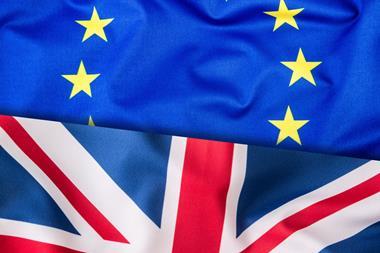

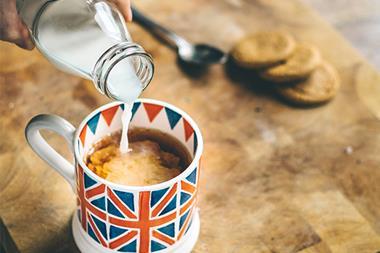
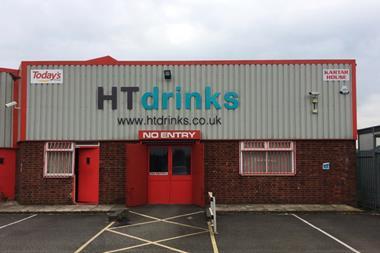
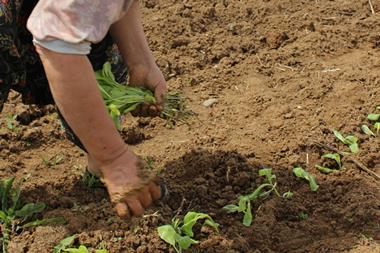
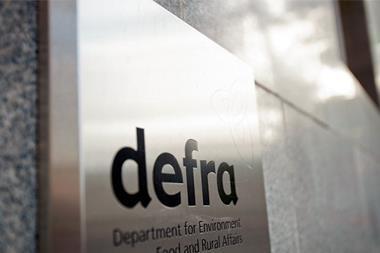






No comments yet